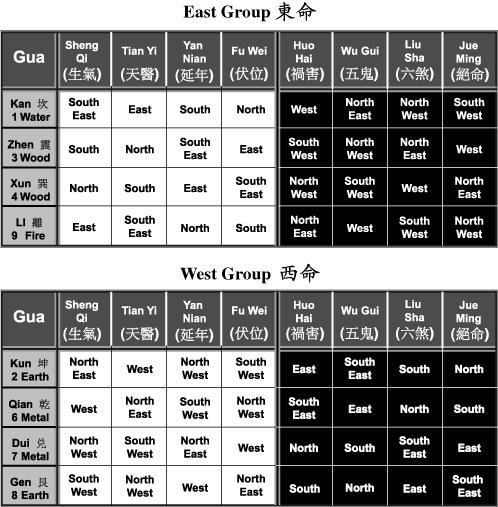 The Do-It-Yourself trend has become so popular these days that it has even extended to feng shui.
The Do-It-Yourself trend has become so popular these days that it has even extended to feng shui.
With a large number of books on the market designed to enable Do It Yourself feng shui, it is no surprise that many people decide to have a go themselves, before bringing in a professional.
I am in favour of DIY feng shui but to a modest and limited degree. After all, we have over-the-counter medicines but that doesn't mean you can buy a book and do brain surgery on yourself.
It is the same with feng shui, where there is often danger of misinterpretation of theories, caused by the rush to simplify feng shui for popular consumption.
Nobody undertakes a DIY project unless it is simple enough to actually DIY. But the problem is, over simplification sometimes results in literally doing the wrong thing.
As a writer of books on feng shui, I know it is not easy to show people how to engage in DIY feng shui. The writer needs to provide as complete a picture as possible on the theory, without confusing the reader or making it complicated.
You've also got to absolutely make sure that it is applicable by everyone, not just those with a measure of feng shui knowledge, and that even if the reader makes a mistake or does something wrong, there is a minimal risk of negative implications. In other words, safety always comes first.
How NOT to Do It Yourself
A good example is a recent consultation I undertook for a businessman. The gentleman in question was an avid feng shui enthusiast and quite well-read on the subject, but he had never taken any formal classes in it.
Despite that, he was keen to ‘tinker' with his office feng shui and so when he moved into a new office, he decided to do the feng shui himself.
Upon visiting his office for the consultation, I immediately saw what the problem was. The office itself had been partitioned into a very strange shape, leaving many awkward angles. The desks were haphazardly positioned, making movement very difficult. Very Picasso-inspired but, frankly, a feng shui disaster zone.
I informed the client that he was likely facing revenue problems, tension in the office, colleagues not getting along with each other, team in-fighting, office politics galore, projects at a standstill and senior staff leaving by the truckloads.
Quite simply, it was a case of the enthusiast having misinterpreted the basics of Eight Mansions Feng Shui.
Big Picture
Feng shui is accessed and applied on two levels – internally and externally. The external environment influences about 70% of the feng shui of your property. The remaining 30% is a result of the internal feng shui in your property.
In feng shui, we are always concerned with determining what is in the environment that surrounds the property, such as mountains and rivers, before we concern ourselves with how the inside of the property is laid out.
My business client had the right approach when he used the Eight Mansions Feng Shui to adjust the feng shui of his office. This is because Eight Mansions is a formula-based assessment method predominantly used for interior feng shui. For this reason, and because it is relatively simple to make use of, requiring practical minimal calculation, it is a popular system for DIY books on feng shui.
The Eight Mansions system of feng shui has two aspects – the Life Gua and the House Gua. Most people are familiar with the Life Gua aspect, which is used to derive the individual's personal favourable and unfavourable directions.
However, they are usually not aware of the House Gua method, which is the actual method that should be used when evaluating the interior feng shui of a property. This is especially the case when the property is used by more than one person, as with an office.
When my businessman client undertook the feng shui of his office, as he was only familiar with the Life Gua method, naturally he tried to position all his staff's desks according to their personal favourable directions. Hence, the desks at all sorts of angles and the door tilted in a peculiar manner.
This strange office layout and tilted door, instead of enhancing his office feng shui, did more harm than good.
Qi flow was disrupted and Sha Qi was created in the office rather than benevolent qi. The tilted door did not achieve the function and purpose of the Main Door, which is to tap and receive the qi from the environment. This is because the slanted or tilted door is like a slanted mouth on a person's face. It is not possible to eat properly with a slanted mouth, similarly a tilted or slanted door doesn't generally receive qi well from the environment.
The client also did not take into account the external environmental influence on his property, the forms, which are an extremely important factor in any feng shui evaluation and which easily account for at least 70% in terms of feng shui significance.
It would also have been far better in this case to ensure that the property itself was correctly positioned to receive positive qi from the external environment and then to use the internal locations within it to fine-tune the qi flow and ensure the organizational and business concerns were met.
Fixing the problem was not difficult. It was simply a matter of straightening the door, ensuring it was tapping the right direction based on the forms in the external environment and the House Gua.
The office layout, in terms of the location of certain key personnel and certain areas, was redesigned according to the House Gua of the property, the Flying Star chart, and then fine-tuned based on the Life Gua of certain key personnel, including the owner himself.
When it comes to Eight Mansions Feng Shui, it is important to recognize that the Life Gua method, which gives us the energy map of the whole property, and the external environmental forms, which tell us what kind of qi there is in the area, that must be considered.
For more information about Life Gua, visit www.joeyyap.com where you can make use of the Life Gua calculator there.
When to FIY (Feng Shui – It – Yourself)
Just because enthusiasts sometimes get their theories wrong, it doesn't mean that Feng Shui – It – Yourself should be condemned. I believe that there's nothing wrong with the clients having done a little legwork of their own or for people to do some simple feng shui to improve matters in their homes.
But it is important to recognize that you should have some basic knowledge and understanding before you choose to Feng Shui – It – Yourself, so to speak.
Just like DIY requires a basic knowledge of how to use a hammer and simple tools, so it is in feng shui: recognize the importance of having the right information on hand.
How do you achieve this?
Firstly, read around the subject. Feng Shui – It – Yourself is a little bit more complicated then putting together a bookshelf from Ikea. But it is not rocket science either. So give yourself the benefit of more knowledge, rather than less.
Secondly, always be guided by the knowledge that feng shui, despite being an ancient science, is not impractical. Use what I like to call the ‘secret art of common sense'.
If you have to resort to doing something outrageous (like tilt your door, or sit at a strange angle) or stuff every corner of your home with knick-knacks and cures, something is definitely wrong.
Remember, there's no reason to have an ugly house or tacky office in the name of feng shui.





 The Do-It-Yourself trend has become so popular these days that it has even extended to feng shui.
The Do-It-Yourself trend has become so popular these days that it has even extended to feng shui. 


